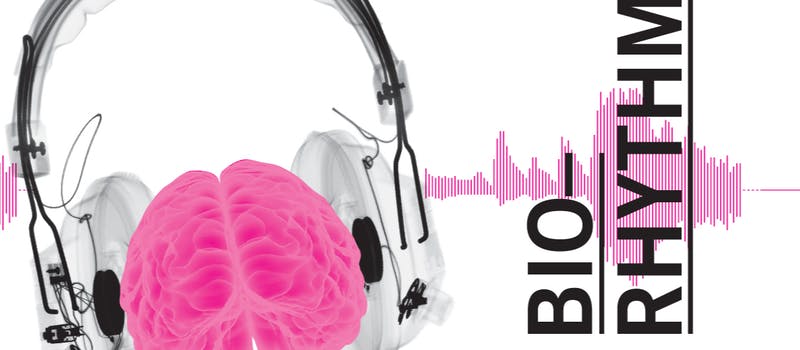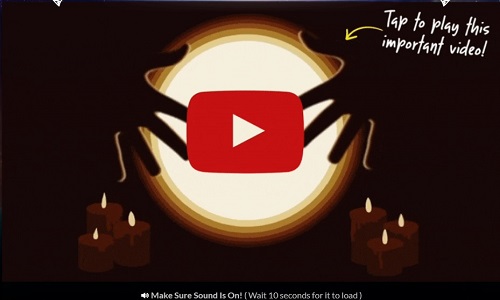Uncover How Biorhythm Effects Music and Body
Music is a universal language that has the ability to move us emotionally and physically. But did you know that the rhythm of music can also have a profound effect on our bodies? This is where the concept of biorhythms comes into play.
Biorhythms are the natural fluctuations of physical, emotional, and intellectual energy that occur within an individual’s body.
These rhythms can be influenced by many factors, including music. In this blog, we will explore how biorhythms can affect both music and our bodies, and how we can use this knowledge to improve our overall well-being.

If you are interested in understanding how biorhythms effect music and body, the first thing to look out for is a biorhythm app. This is the equivalent of an online or offline course, which will teach you the basics of biorhythm.
Introduction to biorhythms and their effect on the body
Table of Contents
Biorhythms are the natural fluctuations of physical, emotional, and intellectual energy that occur within an individual’s body. These rhythms are thought to be influenced by many factors, including genetics, lifestyle, and environment. Each person has their own unique biorhythm pattern, and these patterns can have a significant impact on our overall health and well-being.
The physical biorhythm, also known as the somatic biorhythm, is related to our physical energy and endurance. This rhythm is thought to peak at around the age of 21 and then gradually decline over time. When our physical biorhythm is in balance, we feel strong and energized, but when it is out of balance, we may experience fatigue and lack of motivation.
The emotional biorhythm, also known as the emotional biorhythm, is related to our mood and emotional well-being. This rhythm tends to fluctuate more than the physical biorhythm and can be easily influenced by external factors. When our emotional biorhythm is in balance, we feel happy and content, but when it is out of balance, we may experience mood swings and feelings of anxiety or depression.
The intellectual biorhythm, also known as the intellectual biorhythm, is related to our cognitive abilities and mental performance. This rhythm is thought to peak in our late teens and early twenties, and then gradually decline over time. When our intellectual biorhythm is in balance, we feel sharp and focused, but when it is out of balance, we may experience difficulty with concentration and decision making.
Overall, biorhythms play a crucial role in our overall health and well-being. By understanding our own biorhythm patterns, we can make lifestyle choices that support and improve our biorhythm balance.
How biorhythms influence the rhythm of music
Just as biorhythms can have a profound effect on our bodies, they can also influence the rhythm of music. Music is made up of a series of rhythms, and these rhythms can interact with our biorhythms in various ways.
For example, fast-paced, upbeat music can energize our physical biorhythm and increase our heart rate and blood flow. This can make us feel more alert and motivated, and can even improve our physical performance in activities like exercise.
On the other hand, slow, calming music can soothe our emotional biorhythm and reduce feelings of anxiety and stress. This can help us relax and unwind, and can even improve our sleep quality.
In addition, certain types of music can stimulate our intellectual biorhythm and improve our cognitive abilities. For example, classical music has been shown to enhance memory and concentration, and can even improve mathematical skills.
Overall, the rhythm of music has the potential to support and enhance our biorhythm balance. By choosing the right music for the right situation, we can use music to improve our physical, emotional, and intellectual well-being.
The impact of different musical genres on biorhythms
Different musical genres can have varying effects on our biorhythms. For example, upbeat, energetic music like pop or dance can energize our physical biorhythm and improve our mood. This type of music can be a great choice for a workout or a party, as it can help us get into a positive and energetic state of mind.
On the other hand, calming, soothing music like classical or ambient can have a calming effect on our emotional biorhythm. This type of music can be a great choice for relaxation or meditation, as it can help us unwind and reduce stress.
In addition, complex, intellectual music like jazz or classical can stimulate our intellectual biorhythm and improve our cognitive abilities. This type of music can be a great choice for studying or working, as it can help us focus and concentrate.
Overall, the effects of different musical genres on our biorhythms can vary depending on the individual and the situation. By experimenting with different genres and finding what works best for us, we can use music to support and enhance our biorhythm balance.
Techniques for using music to improve biorhythm balance
There are several techniques we can use to leverage the power of music to improve our biorhythm balance. Here are a few examples:
- Choose the right music for the right situation. As we discussed earlier, different musical genres can have different effects on our biorhythms. By choosing music that aligns with our goals and the situation at hand, we can use music to support and enhance our biorhythm balance. For example, if we want to relax and unwind, we might choose calming music like classical or ambient. If we want to energize our physical biorhythm, we might choose upbeat music like pop or dance.
- Experiment with different rhythms and tempos. The rhythm and tempo of a piece of music can have a significant impact on our biorhythm balance. For example, fast-paced, upbeat music can energize our physical biorhythm, while slow, calming music can soothe our emotional biorhythm. By experimenting with different rhythms and tempos, we can find the music that works best for us in different situations.
- Use music for meditation and relaxation. Music can be a powerful tool for relaxation and meditation. By choosing calming, soothing music, we can use music to quiet our mind, relax our body, and improve our overall well-being. This can be a great way to support and enhance our biorhythm balance.
Overall, by understanding the relationship between biorhythms and music, we can use music to support and improve our biorhythm balance. To learn more about the power of biorhythms and how they can influence your life, check out the video below. It will help you relax, meditate, and manifest the life you want.
Conclusion: The significance of understanding biorhythms in music and wellness
In conclusion, biorhythms play a crucial role in both music and our overall well-being. By understanding our own biorhythm patterns, we can use music to support and enhance our biorhythm balance. This can help us feel stronger, happier, and more focused, and can improve our physical, emotional, and intellectual well-being.
Furthermore, by experimenting with different musical genres and rhythms, we can find the music that works best for us in different situations. This can help us get the most out of music and use it to support and enhance our biorhythm balance.
Overall, understanding biorhythms is an important part of living a healthy and balanced life. By leveraging the power of music, we can support and improve our biorhythm balance, and ultimately, improve our overall well-being.
READ NEXT – How to Use Biorhythms For Manifestation
If you are interested in understanding how biorhythms effect music and body, the first thing to look out for is a biorhythm app. This is the equivalent of an online or offline course, which will teach you the basics of biorhythm.

